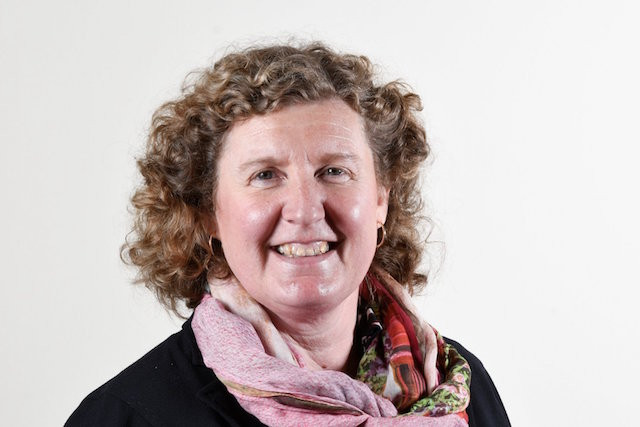“Light it up Blue” is held to mark World Autism Awareness Day on 2 April, which was established in 2008 by the United Nations; the campaign lasts the whole month. Delano met Cathy Fayot--treasurer of the Fondation Autisme Luxembourg since 2010 and mother of a 15-year-old boy with autism spectrum disorder--to learn more about the neurological disorder, which is not always well understood.
Magaly Piscarel: What is autism?
Cathy Fayot: Autism is a behavioral disorder [however] we still have not really managed to detect where it comes from, why, whether it is hereditary or not, so research is still ongoing. Today, there is more or less one in one hundred people born with autism spectrum, it is essentially boys who are affected, so out of five people [with autism], there are four boys affected and only one girl, which makes an estimate of 5,900 to 6,000 that would be affected in Luxembourg. There may be people who are affected only slightly or there are people who are very seriously affected and who not only have the specter of autism, but another disability that is associated. There are a lot of people who do not talk, have [unusual] behaviors, etc. In some cases, aggressive behavior and/or self-injury may occur. What is specific to autistic people is that they have a problem with social connections, they do not communicate like us, they see things differently.
What is the best way to interact with individuals with autism?
The problem is that people do not know how to react, there is this ignorance of the problem and the reaction of the one and the other. They are human beings before all. It’s like with anybody, you need a certain opening, you have to try to go to these people, try to understand them, it’s worth it. It’s not always easy, but they are people who deserve attention just like everyone else. Awareness, information about how these people work, how we can help them, how we can work with them are important. The foundation also uses media as a platform to share the foundation’s needs such as volunteers, money to support projects, organize therapies, workshops or leisure activities. By trying to understand them, we can integrate them, whether at school, in society or in employment. Everyone should try to make an effort.
Fondation Autisme Luxembourg volunteers on UN World Autism Awareness Day, 2 April 2016. Picture credit: FAL
What could be improved in Luxembourg for people with autism?
“There are many children with autism in the mainstream school system. It is not always easy because it takes a little more support. It would be important to strengthen the teams. There is a lot to be done for the employment component for autism people seeking a job. The boss, the company and the colleagues should be well-informed. People with autism who can live by themselves need [some] particular supervision, for example, [help] with administrative procedures. More structures and leisure activities are also needed; that’s part of the national action plan that we are developing.”

